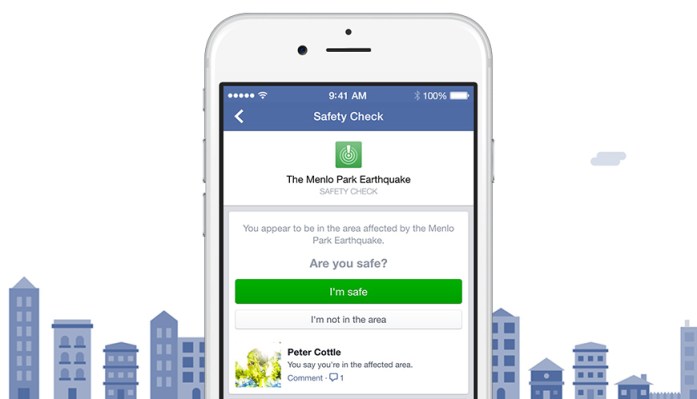Facebook CEO Mark Zuckerberg committed to turning on Safety Check in more human disasters going forward, responding to criticism that the company turned on its safety feature for Paris but not for Beirut and other bombings.
Zuckerberg explained that the Paris terror attacks marked the first time the company has enabled Safety Check for a human disaster, not a natural disaster like an earthquake. The feature allows people in a region affected by a crisis to send a notification to their Facebook friends that says they are safe.
As Facebook profile pictures are updated with French flags and Paris users check in, many have questioned why the same support has not been extended to Beirut, where more than 40 people died in bombings the day before the attacks in Paris.
“You are right that there are many other important conflicts in the world,” Zuckerberg wrote in a comment on Facebook. “We care about all people equally, and we will work hard to help people suffering in as many of these situations as we can.”
Zuckerberg wrote in a comment on his picture that Facebook’s policy just changed on Friday to allow the feature to be used in a human disaster, and going forward it will be used in more.
An early form of Safety Check first launched in 2011 during Tokyo’s tsunami and nuclear disaster. It has since been launched during earthquakes in Afghanistan, Nepal and Chile as well as during Tropical Cyclone Pam in the South Pacific and Typhoon Ruby in the Philippines. However, Facebook says the feature in its current form cannot be applied to all crises.
“In the case of natural disasters, we apply a set of criteria that includes the scope, scale and impact,” wrote Alex Schultz, vice president of growth. “During an ongoing crisis, like war or epidemic, Safety Check in its current form is not that useful for people: because there isn’t a clear start or end point and, unfortunately, it’s impossible to know when someone is truly ‘safe.'”
Facebook said it chose to enable the feature in Paris because it noticed a lot of activity on the ground. So far the company has received positive feedback — as it should. It was reassuring on Friday as news reports were coming in to see friends in Paris checking in as “safe.”
“This activation will change our policy around Safety Check and when we activate it for other serious and tragic incidents in the future,” Schultz wrote.
Schultz also wrote that it would explore more ways for people to show support for “things they care about” through their Facebook profiles, responding to criticism that a French flag instant profile picture was available but not a Lebanese flag option.
Especially now that Facebook boasts more than a billion daily active users around the world, the criticism reinforces the company’s need to maintain a global perspective — not just a Western one.
